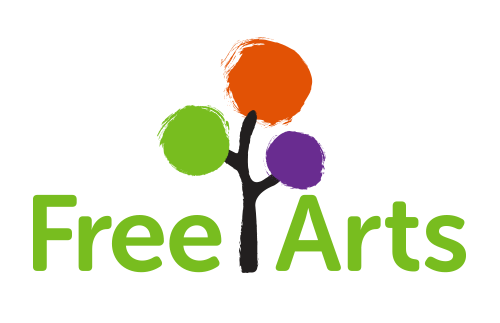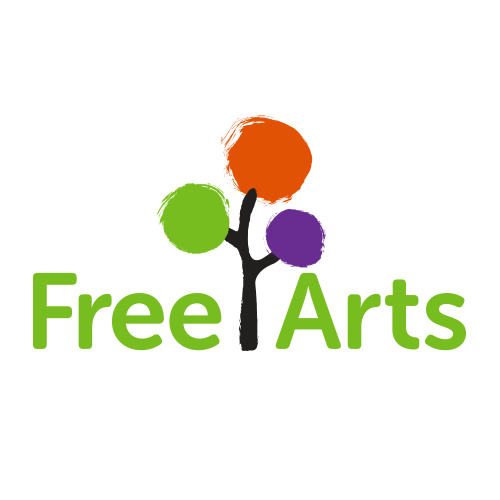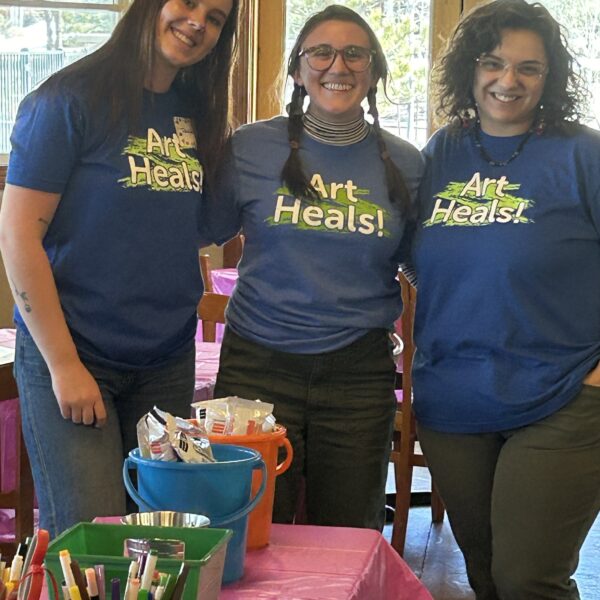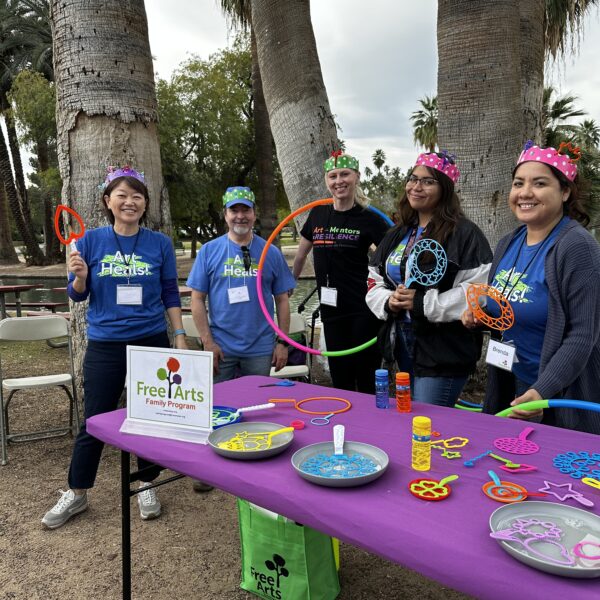Our Camp Intern, Maya Brown, took over our blog to tell you about her experiences at camp!
—
On June 6th, I started my summer internship at Free Arts for Abused Children of Arizona, and jumped in feet-first to the first session of Multicultural Arts Camp (MAC). Flash forward a week and I was hanging out with 60 middle-schoolers during session two of MAC and was consistently blown away by the change I saw in each and every camper. However, nothing amazed me more than what I saw this past week at Theater Camp.
This year’s Theater Camp, “True Colors,” brought together 36 high-schoolers for two weeks and culminated in two final performances. For the first week, as I wrapped thread around Guatemalan worry dolls back at MAC, teens at Theater Camp took classes in visual arts, contemporary dance, spoken word, acting, world music, and began to put together the building blocks for an amazing show.

After I waved goodbye to the last MAC middle-schooler, I made my way over to the second week of Theater Camp. My primary job for Monday and Tuesday was to help Tomas, our artist leading spoken word, transcribe each camper’s poems so they could be edited and memorized for the show. This was a process that left me completely speechless. Each camper used Tomas’ writing prompts, such as, “If you really knew me…” or “My true colors are…” to create beautiful poetry that was articulate and told the most heartbreaking truths about their life story. It is one thing for a teen to sit down to write a poem, but it is something completely different to sit down and open up about their traumatic experiences.

I was amazed by the camper’s willingness to write incredibly brave poetry, especially when I knew they didn’t have to. But, that is the magic of Theater Camp. Each camper came into camp with a story to tell, whether they realized it or not. They were not forced to talk through every traumatic event in their past, but rather they were given the opportunity and space to use their stories to create something beautiful. I know that it is because of the artists, staff, volunteers, and other teens that they were able to feel safe enough to tell their stories. This experience, to me, also reinforced the necessity of the arts as a place of healing; these teens were desperate to tell their stories and to be heard. Theater Camp gave them a place where their stories were not only shared, but shared on a stage in front of 350+ people. I can only hope that for teens who are so rarely asked their opinions, having strangers clap after hearing their stories began to show them how much they really matter.

However, what impressed me the most on Friday were not the individual stories, it was the way the teens took care of each other on and off the stage. It was the subtle moments on stage where two campers stood behind a young man reading his poem, a silent support system, because they knew that it is easier to speak if there’s someone else on stage with you. It was the moment that one young woman left her spot on stage to rest her hand on the speaker’s shoulder when her voice faltered. And it was each moment that campers took the stage together to tell stories, eerie in their similarities, proving to the audience, and to each other, that they were not alone in their experiences. It blew me away, that these teens could put on a show full of so many hard stories and pain, but that they could do it with such love and care for one another.

In just two weeks, 36 teens from facilities across Phoenix came together to put on a 90-minute performance and in this, they became a community. That is the magic of theater, and of Free Arts, because this experience not only helped these teens find their voice, it gave them an audience to cheer them on, to hold them up, and, most importantly, other teens to stand behind them.



